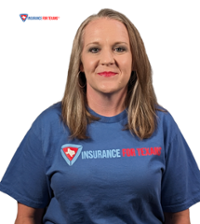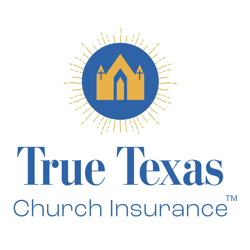When the church leaders at a small church in Abilene sat down to review their insurance coverage before their upcoming renewal, they had one big question nobody could quite answer.
What about the parsonage? Is it actually covered by their current church insurance policy?
The pastor had been living there for over a decade. It was a modest brick home right across the street from the main church property. But as they looked through the insurance policy documents, it wasn’t clear if the house was even listed. That sparked a longer conversation.
What are the coverage limits? What happens if there’s a fire? What about liability if someone trips on the porch steps?
Like many churches, they realized the parsonage wasn’t something they had thought much about from a risk standpoint. It had just been part of the landscape for years.
Times have changed, and ignoring details can be a big mistake for any Texas church regardless of size. Let’s walk through five things every Texas church needs to know when it comes to insuring a parsonage properly.
Ownership Matters for Coverage
This may sound basic, but it’s where many problems start.
If the church owns the parsonage, then the church needs to be the one listed as the named insured on the insurance policy for the parsonage. That includes both the property coverage and the liability coverage.
Yes, the pastor lives there, but it doesn't mean their name should be on the insurance. This is about what is known as insurable interest. Since it belongs to the church, the policy should reflect that when the insurance carrier creates the policy.
Without this, claims can get messy fast. An insurance company could deny a payout or limit what they pay simply because the paperwork wasn’t lined up correctly. You don’t want to be arguing ownership with an adjuster after something bad has happened.
This is where the Abilene church ran into trouble. They assumed their general policy covered everything, but the parsonage wasn’t even on the list of insured properties.

It’s Not a Standard Homeowner’s Policy
Because the building is church-owned, it needs to be insured like any other part of your ministry’s property. That means you need commercial property coverage.
Some churches or pastors have made the mistake of putting the parsonage under a standard homeowner’s policy. But that type of policy assumes the person who lives there owns the home. In a church setting, that’s usually not true.
If a loss occurs under a personal homeowner’s policy and the insurance company finds out the church actually owns the house, they may decline the claim. That could leave your church or religious organization stuck with a huge repair bill.
You can avoid this entirely by having the right commercial insurance policy in place, tied to the church as the owner of the parsonage.
Liability Insurance Coverage Should Be Extended
This is a big one churches often forget.
If the church owns the building, it can also be held responsible for injuries that happen there. That includes things like icy walkways, broken railings, or even a tree limb falling on a guest’s car during a visit.
Your regular church liability policy may not automatically extend to the parsonage if the property is not listed on the policy. In many cases, you’ll need a specific endorsement that makes that coverage apply to church-owned residences.
And it’s not just about protecting visitors. Think about utility workers, contractors, or even church members helping with maintenance. If someone is hurt on-site, your church could be liable.
The church in Abilene added this coverage once they learned it wasn’t included in their old setup. It cost a little more, but the peace of mind was worth it.
Contents Coverage May Require Coordination
Here’s another area where confusion is common.
The church insures the building. But what about the stuff inside it?
Generally speaking, it is common for the pastor or staff member who is residing in the parsonage to have their personal belongings inside the parsonage. That includes furniture, clothing, electronics, and more. It is called personal property.
The church insurance policy doesn’t usually cover these items that are owned by the family residing there. So who does?
The pastor or other resident will need a renter’s policy to protect their own things. Pastors or other staff members staying there have to purchase it themselves since they have the insurable interest rather than the church.
One exception is that if the church leaders provide the parsonage fully furnished, the church insurance policy will need some coverage for the furnishings provided. This will fall under business personal property on the commercial policy.
What matters is that everyone understands who is responsible for what. The church covers the structure and furnishings provided. The pastor or staff member covers their contents they bring into the house.
When this is handled upfront, it avoids major problems later on if there’s fire, theft, or water damage.
Maintenance and Risk Exposure Still Matter
Just like your main church building, the condition of the parsonage will affect your insurance premiums and coverage limits.
If the roof is twenty years old, if the wiring is outdated, or if the property hasn’t had basic maintenance in years, your policy could come with many exclusions and higher premiums.
Insurance companies still inspect church-owned residences and will often request repairs before they write or renew a church insurance policy that provides coverage to this residence.
One of the first things the church in Abilene did was schedule a walk-through of the parsonage. They updated a few things, fixed some siding, and replaced the smoke detectors. Small steps like that made a big difference when it came time to add the new coverage to their policy.
The better shape the property is in, the easier it is to get good protection at a reasonable price.
Specialized Agents Can Help You Get It Right
After going through this process, the church in Abilene realized something important. They had been handling their insurance through a regular agency that didn’t really understand church property. That included the parsonage.
They decided to connect with an experienced church insurance specialist at Insurance For Texans. The saw an immediate difference in the process of securing their new church insurance policy.
The agent started with questions about their church's activities, ministries, and property. He also walked them through how the parsonage needed to be listed, what kind of policy was best for their church organization, and how to keep the coverage aligned with how the home was used.
This is what True Texas Church Insurance is built to do. It’s not just about price or paperwork. It’s about protecting the parts of your ministry that matter. That includes the home you provide to your pastor and their family.
Click the button below to talk to someone who understands how church insurance works in Texas and can help you make sure your parsonage is properly protected.



